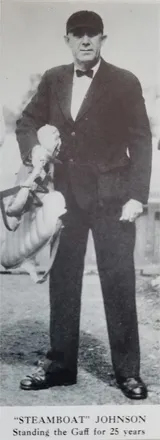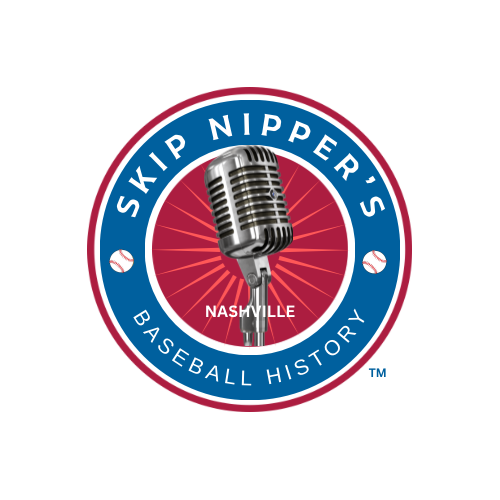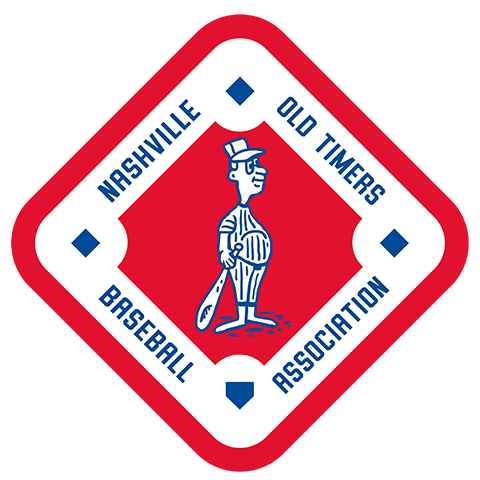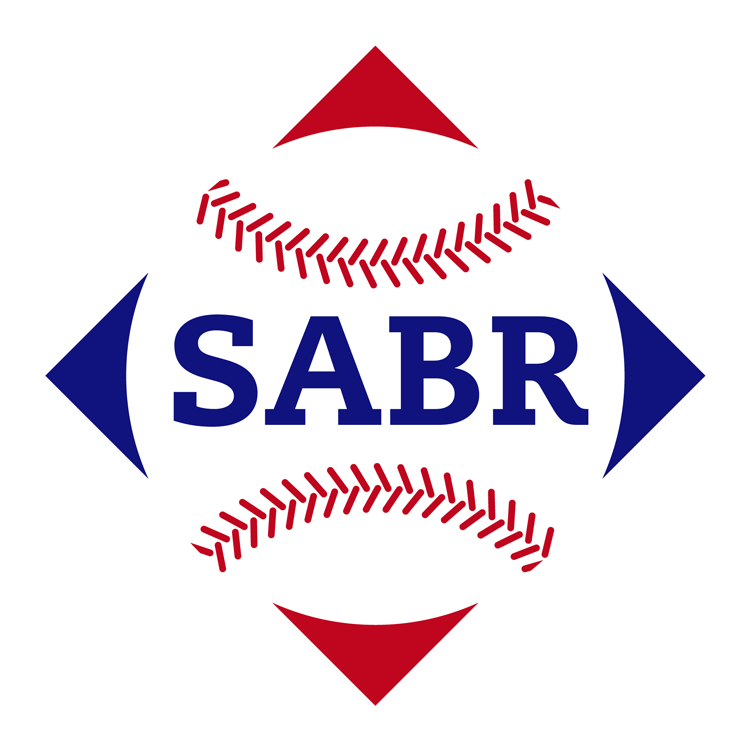
Umpire Harry Samuel Johnson had a reputation among players that even his whisper was as loud as the sound of a steamboat’s whistle. “Steamboat” Johnson also became famous in the annals of the Southern Association as one of the most colorful characters to ever don umpire’s gear.
Born in Pottsville, Pennsylvania, on March 26, 1880, where his father owned a saloon, the family soon relocated to Elmira, New York, where Harry played first base for his school team. His family moved to Wilkinsburg, Pennsylvania, after graduation, and he continued to play and manage in the sandlots.
As co-owner and manager of a team in 1909, Harry realized that the umpires he had been hiring were less than adequate. He decided that he could do a better job and began umpiring games in the fall.
Being an umpire came naturally, as Harry was not only a student of the game but honored impartiality in his judgments while knowing the rules inside-and-out. No matter that his voice was boisterous; his quick interpretations and sound decisions gave him a reputation that helped him to earn the trust of managers and players.
After a season in Pittsburgh semi-pro leagues, the Ohio and Pennsylvania League hired him for 1911, and his professional umpiring career was off and running.
Moving up to the Western League in 1912 and the Three-I League in 1913, he found himself in the National League during the 1914 season. He worked 54 games as an extra umpire. Not retained for the next season, Steamboat was not deterred and worked in the New York State League for the next three years.
After one season in the International League in 1918, he saw his first tenure in the Southern Association for two years in 1919 and 1920. It was during the 1919 season, working a game in Atlanta, where the sports editor of the Atlanta Georgian wrote,
“None of us know where John D. Martin (president of the Southern Association) got this Umpire Johnson, but he has a voice like a Mississippi River steamboat. From now he is ‘Steamboat’ Johnson to Atlantans.”
The South Atlantic League president W. W. Walsh asked Johnson to umpire in 1921, as the league was known for rough players who felt they could frighten all umpires. Successful in bringing stability to the umpire corps, Johnson had a clause in his contract that he could return to the Southern Association, and his second tenure there lasted from 1922 – 1946.

In 1935 his book Standing the Gaff was published. It documented much of Johnson’s professional life for 25 years. Harry determined that he had umpired over 4,000 games and made 1,000,000 decisions. A chapter of umpiring questions and answers was a guide for his readers and gave a testament to his authority on the game he loved. He held power in his knowledge of the game, and throughout his career, he was often called on to speak to umpire organizations.
Once his book was published, Harry would hire youngsters to sell copies before games in the southern ballparks in which he was umpiring. If his game decisions were not popular with local fans, they would often throw his book at him.
Harry would gather up the books around him and resell them before the next game.
Johnson was incredibly proud that he had never used tobacco or alcohol, and fans recall that after the final out of the last game of the season, he would turn to the crowd and say, “God bless you.”
Local sportswriter Fred Russell affirmed Steamboat’s vision some fans called into question.
“…and do you want to know what he had in the front part of his bill fold? A certificate from a Memphis optician that his eyes were 100% O. K.”[1]
Between 1947 through 1949, Johnson became the supervisor of umpires in the Southern Association. In 1950 he opened an umpiring school that lasted for one season before he fell ill. A resident of Memphis, Johnson died on February 20, 1951, at the age of 70.
Notes
[1]Freddie Russell, “Sideline Sidelights” column, Nashville Banner, August 19, 1930, 10.
Sources
baseball-reference.com
Johnson, Harry (1935). Standing the Gaff: The Life and Hard Times of a Minor League Umpire (1st Edition), Parthenon Press: Nashville.
Nashville Tennessean and Daily American
newspapers.com
© 2020 by Skip Nipper. All Rights Reserved.



